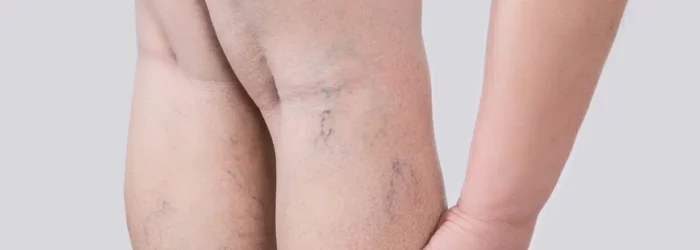
A phlebologist is a doctor who specialises in treating disorders of the veins such as: varicose veins, phlebitis or venous insufficiency.
Angiology, also known as vascular medicine is a medical speciality in it’s own right concerning the blood vessels (arteries, veins, microcirculation) and lymph system. Phlebology is a part of angiology devoted to the diagnosis and treatment of venous pathologies such as phlebitis, heavy leg syndrome and unsightly varicosities…
Veins are the vessels that carry blood from the periphery to the heart. At the level of the legs, veins vary in size, and possess valvula or thin flaps of valves which open to allow blood to rise and close to prevent it from flowing back down.
The venous network of the legs is composed of two parts: the superficial network and the deep network.
The deep venous network is composed of deep veins located amidst the muscles. It carries 90% of the venous blood. Its role can be interrupted in certain cases and a blood clot forms in a deep vein, preventing the blood from rising: this is Phlebitis or deep vein thrombosis.
The superficial venous network is composed of superficial veins more visible to the naked eye as they are close to the skin. It carries 10% of the venous blood. This is the network in which varicose veins form.
Venous pathologies affect men and women equally. There are several signs related to venous insufficiency: heavy legs, oedema or swelling of the legs at the end of the day, night cramps and sometimes even pins and needles.
At the consultation, the phlebologist will take the time to listen to you, understand your concerns and find out about your medical history. After a thorough clinical examination, a Doppler ultrasound can be performed. At the end of this first consultation, you will be offered a treatment option.
Sclerotherapy
Sclerotherapy is the gold standard for the treatment of varicosities of the legs […]
